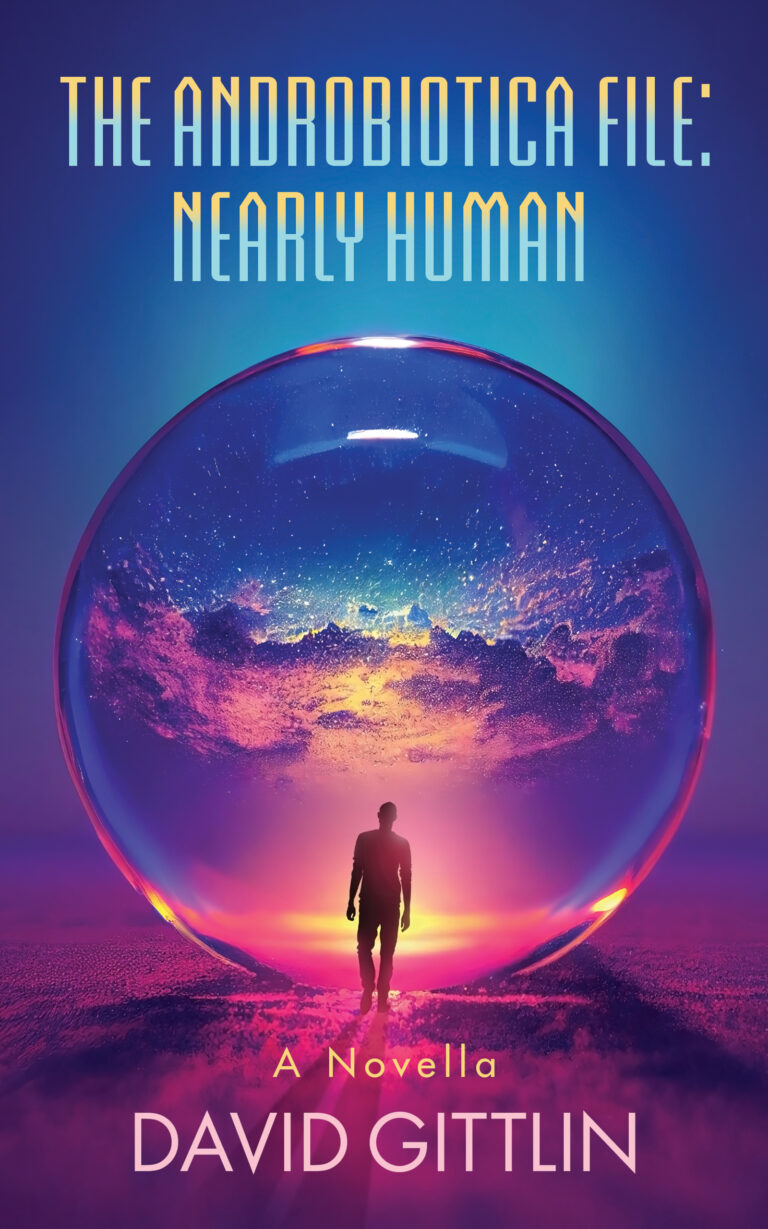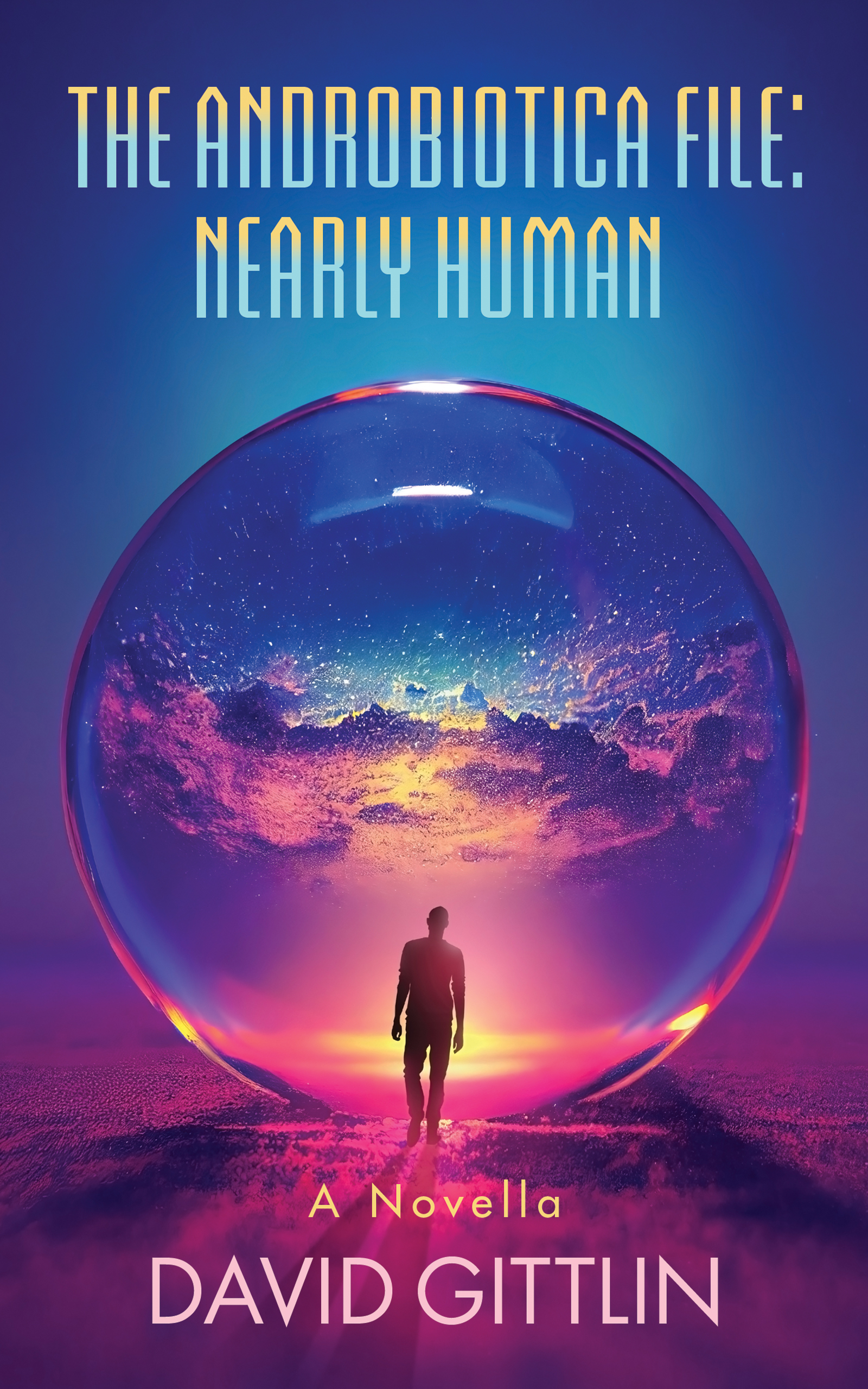The tech company AndroBiotica has a secret government contract to create and manufacture androids that can pass as humans. Expensive to manufacture and a moral minefield, these androids’ sole use is to infiltrate terrorist cells, illicit drug organizations, and other large-scale criminal activities. The blueprints for the androids have been stolen, and, since security access to the files is severely restricted, there are only a few potential suspects. Deputy First-Class Investigator Derrick Faulk has been tasked to recover the files before they get into the wrong hands. With his seductive assistant, Aurora Zolotov, he must chase down every lead and cross timelines to get to the truth. But is there a secret far closer to home that Faulk may have overlooked?
In terms of theme and setting, THE ANDROBIOTICA FILE: Nearly Human owes an awful lot to Philip K. Dick’s Do Androids Dream of Electric Sheep?—and most notably its film incarnation, Blade Runner. Similar to the film, Gittlin uses the first-person private investigator narrative style to explore the ethics of life-like androids and the ways that humans may interact with them. The questions of who or what is real and if it really matters run throughout the book. The moral issues raised about sentience and artificial intelligence are perhaps even more pertinent, and certainly more immediately pressing today than they were at the time Dick was writing. With the advent of AI as a mainstream concern, what was once speculative sci-fi is now grounded in reality.
Billed as a novella, THE ANDROBIOTICA FILE: Nearly Human is really little more than an extended short story. Gittlin raises interesting points, but never takes the time to fully develop them. At one point, Faulk questions what will happen to all the regular people if androids become more commonplace. The head of the tech company replies that this is simply a “by-product of advancing technology” and “part of the natural order of things.” It would have been interesting to probe the implications of this. By the end of the book, Investigator Faulk’s own relationship with androids is further tested, with Gittlin providing a twist to make his point that almost every reader will have expected before it is revealed. But, again, just as a philosophical conundrum raises its head, Gittlin moves the narrative along.
Though lacking the humor of the author’s excellent The Silver Sphere Trilogy, David Gittlin’s THE ANDROBIOTICA FILE: Nearly Human is a similarly fast-paced and fun read with plenty of pulpy old-school sci-fi charm.
~Kent Lane for IndieReader


